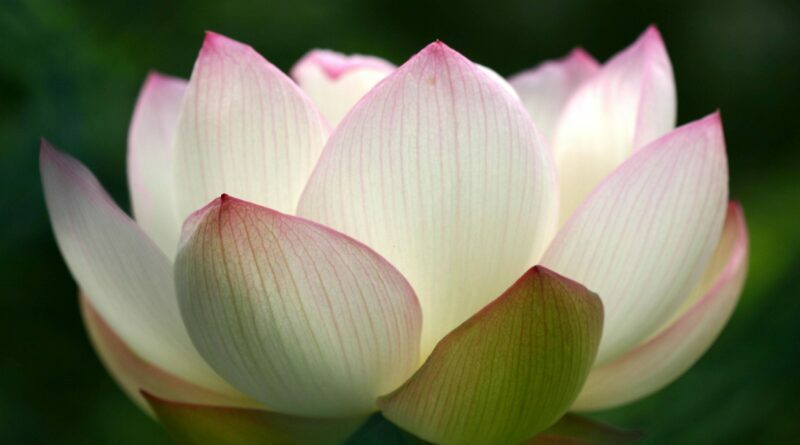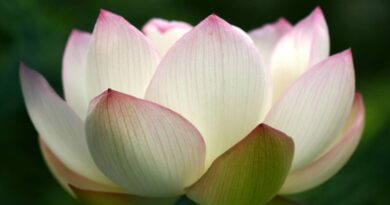HOUSEWORK & FIELDWORK
Housework & Fieldwork
When we sit and meditate, there are three things we have to work with:
1)The breath: make it the object of the mind.
2)Mindfulness: think of the meditation word bud- with the in-breath and dho with the out.
3)The mind: keep the mind both with the breath and with the meditation word. Let the breath flow comfortably. Let the mind be at ease. Don’t force the breath or try to put the mind into a trance. Keep the mind firm and upright, and don’t let it slip off here or there.
These are the things we have to study—not just so that we’ll know them. We study them so that we can put them into practice, i.e., we practice them so that we’ll come to the knowledge we really want.
In keeping the mind pure, we have to cut away perceptions so that they don’t stick in the heart. It’s like looking after a white sheet spread on our bed. We have to watch out for any dust that will blow in on the wind and land on the sheet, and for any insects—such as ants or bed bugs—that will come to live there. If we see any dust, we have to take the sheet and shake it out. Wherever there are any stains, we have to launder it immediately. Don’t let them stay long on the sheet or else they’ll be hard to wash out. If there are any insects, we have to remove them, for they may bite us and give us a rash or keep us from sleeping soundly. When we keep looking after our sheet in this way, it will have to stay clean and white and be a comfortable place for us to sleep.
The dust and insects here are the Hindrances that are the enemies of the heart. We have to look after our heart in just the same way we look after our bedding. We can’t let any outside perceptions come in and stick to the heart or nibble at it. We have to brush them all away. That way the mind will become calm, free from distractions.
When we meditate, we’re giving rise to skill in three ways: we aren’t harming anyone with our body; we aren’t bad-mouthing anyone with our speech; and we’re getting the mind to stay with good intentions. In other words, we’re staying with buddho with every in-and-out breath, so we’re not thinking of doing anything evil, and we don’t think thoughts of anger or hatred about anyone. This way our body, speech, and mind are pure. This is what gives rise to merit and skill, for we’re not doing any evil at all.
When we think of the breath in this way, it’s as if we’re painting a picture on a piece of white cloth. Our mind in its ordinary state is like a plain piece of cloth, with no patterns or designs. When we raise the mind to a higher level and think of the factors of meditation, it’s like drawing a mental picture on it. For example, the word buddho is a mental picture, inasmuch as we can’t see it with our eyes, but we can see it through our thinking. If we think of it constantly, it’s as if our ink or paint seeps deep into the cloth. If we don’t think buddho, or think of it in only a superficial way, it’s like drawing with a pencil. The picture won’t stick and seep into the heart. It might get smeared or entirely erased.
Then we add details to our picture: this is what’s meant by evaluation (vicāra). If we keep at it, our picture will become more and more elaborate. As the picture becomes more and more elaborate, we’ll notice whether the in-and-out breath has become comfortable or not. If it’s easy and comfortable, keep it that way. Sometimes you’ll notice that the mind is comfortable but the body isn’t; sometimes the body is comfortable but the mind is irritable and distracted; sometimes the body is reasonably comfortable and at ease, and the mind has settled down and isn’t jumping about. So when you see any aspect that isn’t comfortable, you should fix it, in the same way that a rice farmer has to keep careful watch over the sluice gates in his field, clearing out any branches or stumps that will cut off the flow of the water. When you see anything that isn’t good, you should get rid of it. You have to stay observant of the breath, to see if it’s too slow or too fast, or if it’s making you tired. If it is, change it.
This is like plowing or harrowing your field. When the big clods of earth get broken up and spread around, the field will be level. When the body gets level and smooth, keep it going that way. The mind will then become level and smooth as well—for it lives with the body, and now it gets to stay in a place of comfort. Whether it’s good in every part, or only in some parts, you’ll know.
When we give rise to skill in the mind like this, it’s as if we’ve gained wealth. And when we gain wealth, things are bound to come and disturb us, just as a tree with beautiful, fragrant flowers tends to have caterpillars or insects disturbing its flowers. When the virtues of the Buddha, Dhamma, and Saṅgha arise in the heart, there are bound to be things that will disturb or destroy them, such as visions or Hindrances, just as when a flower is pestered by insects, it may fall away from the tree. When it falls off the tree, it won’t be able to bear fruit. The same with your mind: Don’t let your goodness fall away under the influence of the Hindrances. You have to keep after it, to make sure that it stays still and established in the body until there’s no sense of anything disturbing it or trying to destroy it. The mind will then be like a spray of mango flowers nourished with drops of mist. In no long time it will bear fruit, and you’ll be able to harvest the fruit and eat it in comfort.
In the Dhammapada, the Buddha says that a person who is forgetful or heedless is like a dead person. In other words, if mindfulness lapses for a moment, you’ve passed out for a moment. If it lapses for a long time, you’ve passed out for a long time. So if you realize that it’s lapsed, you have to correct things immediately. In other words, you re-establish mindfulness right away. If you’ve realized it’s lapsed, there’s at least some hope for you. Some people don’t even know that it’s lapsed: those are the ones who are hopeless. As the Buddha said, Pamādo maccuno padaṁ: heedlessness is the path of death. This is because heedlessness is delusion, the root of unskillfulness. When delusion arises, it opens the way for all kinds of evil and unskillful things. So we should try to uproot it immediately before it starts growing and spreading its branches far and wide. When mindfulness lapses, it opens the way for us to think of all kinds of things, making it hard for us to finish our work. To say nothing of keeping track of the breath, if mindfulness keeps lapsing we couldn’t even finish writing a single letter.
So we have to be especially careful to maintain mindfulness. Don’t let yourself forget or lose track of what you’re doing.



